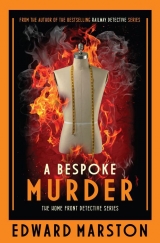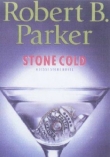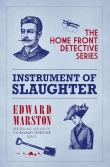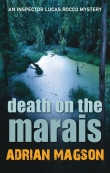
Текст книги "A Bespoke Murder"
Автор книги: Edward Marston
Жанр:
Классические детективы
сообщить о нарушении
Текущая страница: 9 (всего у книги 18 страниц)
CHAPTER TWELVE
She met him for lunch in a small cafe recommended by her sister. Gill had suggested a drink at a pub but Irene preferred to keep him away from alcohol because it melted his inhibitions in a way that she found rather alarming. A chat over a wholesome meal and a cup of tea was much safer. Irene was smartly dressed and Gill had his best suit on once more. He’d even acquired a flower for his lapel and looked quite raffish. She made it clear from the start that she intended to pay half of the bill, thus liberating her from any feeling of obligation. After some token protests, Gill agreed.
‘What brought you to London?’ she asked.
‘ Youdid, Irene,’ he replied with a chortle.
‘Don’t be silly.’
‘It’s partly true. I’ve got men friends here – I’m staying with one at the moment, as it happens – but, knowing that you’dmoved to London helped me to make my decision. I’d be able to see you again. That doesn’t mean I’m going to pester you,’ he added, raising his palms in a placatory gesture. ‘You’re entitled to your privacy. I know that. I just hoped that we could … well, meet up now and then to talk about old times.’
‘As long as that’s all it is, Ernie,’ she said, levelly.
He put a hand to his heart. ‘On my word of honour.’
Not wishing to start an argument, Irene forbore to point out that she’d heard him make and break such solemn vows before. She let it pass, feeling that she had made her position clear and resolving that any future meetings with him would be few in number. Gill would not be allowed to upset the equilibrium of her new existence.
‘No thought of going back to sea, then?’ she asked.
‘Not a hope,’ he said. ‘My sailing days are over. There’s always work for a barber ashore. In fact, I’m going to see someone about a job this afternoon.’
‘Why didn’t you stay in Liverpool?’
‘It was time for a change, Irene.’
‘But you had family there.’
‘A brother and two sisters,’ he confirmed. ‘I never got on with any of them, to be honest. So I thought I’d give the Big Smoke a chance and see what it had to offer – apart from you, that is.’
‘Now, now, Ernie,’ she scolded. ‘Control yourself.’
‘It was meant as a compliment.’
‘You’re a bit too ready with your compliments – and I’m not the only woman who’s aware of that. You scattered them about like confetti on the Lusitania.’
He smirked. ‘I’ve always had a soft spot for a pretty face.’
‘Let’s go back to Liverpool,’ she said. ‘You once told me it was the best city in the world and that you’d never leave it. What changed your mind?’
‘Oh, it was lots of things.’
‘What did you do after we parted company at the docks?’
‘First of all, I followed you,’ he recalled, ‘then I went back to my digs and dumped all my stuff there. After that I walked to the pub where my friends go and spent the evening having pints bought for me. They all wanted to know what happened when the ship went down. I was treated like a hero.’
‘That’s what you are, Ernie.’
‘I don’t feel it. I was lucky, that’s all.’
‘We both were,’ she said, soulfully.
‘Anyway,’ he went on, ‘when I had enough beer inside me, I was raring to go. They told me that most of the Germans had been either burnt out or chased out but I knew of a family that’d sort of slipped through the net. They’d been there for donkey’s years, you see, and changed their name so long ago that people forgot they were still foreigners. I knew the truth,’ he said, tapping his chest, ‘and I wasn’t going to let them get away.’
‘What did you do?’
‘We paid them a visit, Irene.’
‘I hope there was no violence.’
‘Let’s say that we did what needed to be done,’ he told her. ‘They won’t be able to hide behind the Union Jack anymore. Britain belongs to the British. Huns are not wanted.’
‘There’s been far too much senseless brutality.’
‘What about that blinking torpedo?’ he retorted, banging the table. ‘That’s what Icall senseless brutality. Think of all those dead bodies floating in the sea – men, women and children murdered on the orders of some cruel German admiral. So don’t you criticise me, Irene. At least we gave people a chance to defend themselves.’
She was uneasy. ‘What exactly happened?’
‘It doesn’t matter.’
‘Go on – tell me. When I left you in Liverpool, you were spoiling for a fight. Where did you find these people?’
‘Forget them,’ he said, evasively. ‘They’re not even worth talking about. I’ve got bigger fish to fry. Talking of which,’ he continued as he speared a chip with his fork, ‘I don’t think much of this cod. We had far better grub on the ship.’ He nudged her arm. ‘In fact, we had far better everything.’
‘Those days are over, Ernie.’
‘A man can have his memories.’
‘Provided he knows that they areonly memories,’ she said.
He cackled. ‘I’ll win you over one day, Irene.’
‘Don’t you even dare to try.’
‘Oh, come on – is this the kind of life you reallywant?’
‘Yes, it is,’ she affirmed, chin out.
‘What – sharing a house with your spinster sister and a blind woman with one foot in the grave? You were born for better things than that. My guess is that you’ll be bored stiff within a week.’
‘Then your guess will be wrong.’
‘What the hell are you going to do all day?’
‘Have no qualms on that score. I’ll soon be working in a toy factory. That will keep me out of mischief.’
‘I love mischief,’ he said, laughing. ‘Whenever I get the chance, I enjoy causing trouble. I went to a meeting last night of people who think like me – good, honest, British citizens who are fed up with being told what to do by the government and are ready to stir things up on their own. We hit and run – just like I did in Liverpool.’
‘What do you mean?’
‘It wouldn’t interest you, Irene. You’re too law-abiding.’
Her face puckered with concern. ‘Have you committed a crime?’
‘I done my country a service,’ he boasted, ‘and I had a good laugh while I was doing it. That’s all I’m ready to admit.’
Slicing off a piece of fish, he thrust it into his mouth and munched away. Irene was disturbed. A meal that had been quite pleasant had turned into a cause for alarm. Ernie Gill was a diehard Liverpudlian who’d sworn time and again that he would never leave his native city. Yet here he was, strutting around London in his best suit and revelling in the idea of making mischief. What was his real reason for leaving Liverpool and what sort of trouble had he created since he’d arrived in the capital? On balance, Irene decided, she did not want an answer to either question. It was best not to know.
Harvey Marmion was collating all the information gathered by his team of detectives. He was so immersed in his work that he didn’t hear the knock on the door and was only aware of his visitor when Joe Keedy’s shadow fell across the desk.
‘Good morning, Joe,’ he said, looking up.
‘I hear that we’ve found one of our mystery men.’
‘That’s right. His name is Howard Fine and he’s the young tailor who worked briefly at Mr Stein’s shop. He’s definitely not our killer. When his former boss was being stabbed, Fine was in Brighton with his family.’ He glanced at the sheet of paper in front of him. ‘According to this, he has a perfect alibi.’
‘He needs interviewing nevertheless.’
‘Yes, I’m having him brought in today.’
‘What about the other former employee?’ asked Keedy. ‘You know – the man who left after a big row?’
‘We’re still looking for him.’
‘He was called Porridge or something like that.’
‘Cyril Burridge,’ corrected Marmion with a laugh. ‘People who knew him say that he was a first-rate tailor with many productive years in the trade.’
‘Then why did he suddenly disappear?’
‘We’ll ask him when we find him, Joe. We’ll also ask him why he and Stein fell out after such a long time together. David Cohen, who managed the shop, said that Burridge seemed set to spend the rest of his life working in Jermyn Street.’
‘So what went wrong, Inspector?’
‘The only person who can tell us that is the man himself.’
‘If he’s that experienced,’ said Keedy, ‘he must have found a job elsewhere by now.’
‘Oh, he has. Burridge was snapped up by one of Stein’s bitter rivals in Savile Row. It was the first place our lads looked but it seems that Burridge is on leave at the moment.’
‘Where has he gone?’
‘Nobody seems to know,’ replied Marmion. ‘When they called at his house, there was nobody there.’
‘Do you think he’s gone into hiding?’
‘It’s beginning to look like that, Joe.’
He handed a report about the man to Keedy who flicked through it before putting it back on the desk. In his opinion, Burridge had to be considered as a suspect. He reasoned that someone who had been in the business for so many years would be familiar with Stein’s routine and very much aware of what the safe in the upstairs room had contained. Another factor weighed with Keedy.
‘Burridge is not a Jewish name, is it?’
‘No,’ replied Marmion. ‘He’s a chapel-going Yorkshireman from Barnsley. That’s what Cohen told me anyway. I had the feeling that Burridge was not the manager’s best friend. He could be blunt.’
‘They speak their mind in Yorkshire.’
‘I’m all in favour of plain speaking, Joe.’ He rose to his feet. ‘It means that you know where you stand with people.’ He checked his watch. ‘I’d like you to interview Mr Fine, if you will. He’s on his way here right now. It’s probably a waste of time but you might just get a nugget or two out of him. There’s no harm in trying.’
‘What will you be doing, Inspector?’
‘I’ll be grilling some other people who took part in the raid on the shop. While we were away, our lads tracked down three of them in all but not – alas – the man with the petrol can.’
Marmion went on to inform him that John Gatliffe had been released on bail but that Oliver Cochran had been refused bail and was remanded in custody. The inspector had no fears that Gatliffe would abscond. The soldier was ashamed of what he’d done and was ready to take his punishment. Instead of returning to his family as a courageous soldier, he’d had to slink home with his tail between his legs and explain the situation to his parents. Cochran, by contrast, still maintaining his innocence, waslikely to make a run for it if set free. He was better off behind bars where he could not intimidate his friend.
‘We may have done the pair of them a favour,’ said Keedy. ‘Prison might turn out to be a lighter option than being stuck in a trench while the Germans use them as target practice.’
‘I fancy that Cochran and Gatliffe would disagree. Compared to the regime they’ll face in prison, the army will seem like a relief. And think of the humiliation they’re going to suffer.’
Keedy remembered the ordeal endured by Ruth Stein.
‘I’d rather think about the humiliation the girl suffered.’
Marmion nodded. ‘So would I, Joe – so would I.’
‘I’d better go and see if Mr Fine has arrived.’
‘Ask him if there were any tensions at the shop.’
‘I don’t think he was there long enough to find out.’
‘You never know.’
When Keedy left the room, Marmion resumed his seat and began to sift through the paperwork. He was soon interrupted by a tap on the door. As it opened, a young detective constable stepped into the room. He cleared his throat before speaking.
‘There’s a gentleman outside who insists on speaking to you, Inspector,’ he said.
‘Then show the fellow in.’
The constable beckoned to someone in the corridor and a well-dressed man in his fifties strode purposefully into the office.
‘Inspector Marmion?’ he enquired.
‘That’s me, sir,’ said Marmion.
‘I’m Cyril Burridge. I understand you’ve been looking for me.’
Irene Bayard visited the shoe shop as a customer rather than as the sister of its manager. Dorothy, however, insisted on giving her preferential treatment and served Irene herself. While her sister was trying on a third pair of shoes, Dorothy tried to probe.
‘When will you be seeing Ernest again?’ she asked.
‘We haven’t set a date.’
‘It’s good for you to have a friend in London.’
‘He’s not that kind of friend, Dot.’
‘He proposed to you, didn’t he? So he must be keen.’
‘Yes,’ said Irene with a sigh. ‘He’s keen all right.’
‘What happened yesterday? All you’ve told me is that you had a nice lunch together. There must have been more to it than that.’
‘There wasn’t.’
Having put on both shoes, Irene stood up and walked up and down to test them for comfort. Then she stood in front of the mirror to see how they looked. Dorothy waited while her sister had another stroll up and down the shop. Irene eventually sat down again.
‘The left one is pinching my foot slightly,’ she said. ‘Perhaps I’ll need a larger size after all.’
‘I’ll get a pair for you to try.’
Dorothy darted off into the storeroom. Irene removed the shoes and turned one over to see the price marked on the sole. Her sister came back with a pair in the same style. Dorothy put them on.
‘How do they feel?’ asked Dorothy.
‘Much better, thanks.’
‘You’ve always had wide feet.’
‘It comes from spending so much time on them, Dot. When I worked for Cunard, I was always at someone’s beck and call. It will be nice to have a job where I can work sitting down.’
‘Did you tell Ernest about the toy factory?’
‘Yes.’
‘Does he have a job yet?’
‘He was going for an interview yesterday.’
‘Where?’
‘I’ve no idea,’ said Irene, slipping on both shoes then standing up and promenading again. She stopped in front of the mirror and examined the shoes from various angles. ‘These are really comfy.’
‘Does that mean you’ll take them?’
‘Yes … yes, I think I will.’
She sat down and took them off so that Dorothy could pop them back into the box. Irene put on her own shoes, picked up her handbag and crossed to the counter. Her sister had moved to the till. Dorothy felt slightly cheated that she’d been told so little about the lunch Irene had shared with her friend. Expecting a full account, she’d got no more than a couple of sentences out of Irene. She probed again.
‘So you will be seeing him again in due course?’
Irene pursed her lips. ‘I suppose so.’
‘You don’t sound very enthusiastic.’
‘We’ve got so little in common.’
‘How can you say that, Irene? You worked together for years and the pair of you survived the sinking of the Lusitania. I’d have thought that would give you a bond for life.’
‘Well, it hasn’t.’
‘Listen,’ said Dorothy, ‘why don’t you invite Ernest for tea one Sunday? I’d so like to meet him.’
‘No,’ said Irene, decisively. ‘I’m not having him in the house. Let’s be clear about that. If he calls when I’m not there, he must not be allowed in. Do you understand?’
Dorothy was taken aback by the sharpness in her voice.
‘I’m sorry, Irene,’ she said, ‘but, frankly, I don’tunderstand.’
Cyril Burridge was an unlikely tailor. He was a big burly man in his fifties with the broad shoulders of a manual worker and an ugly face decorated by a walrus moustache. His expensive suit had been cleverly cut to hide his paunch. Marmion sensed a dormant anger in his visitor. When he’d offered Burridge a seat, he got him to talk about his time at the shop in Jermyn Street. Burridge was laconic. Into less than two minutes, he condensed the story of well over twenty years.
‘Why did you leave?’ asked Marmion.
‘It were time to go.’
‘Mr Cohen said you had a disagreement with Mr Stein.’
‘So?’
‘What was the disagreement about?’
‘It’s a private matter.’
‘Not if it’s relevant to this investigation, Mr Burridge. I need hardly remind you of the seriousness of the crimes committed. Someone murdered your former employer. To find out who the killer was, I need every detail I can gather about what went on inside the business. In other words,’ Marmion stressed, ‘privacy does not exist.’
Burridge glowered at him for a few moments then he sniffed.
‘It were about money,’ he confessed.
‘You wanted an increase in your pay?’
‘We all want that, Inspector.’
‘Why are you being so evasive?’
‘Ask Mr Cohen about that.’
Marmion sat back to appraise him. Burridge was well defended. He was ready to cooperate with the investigation but only on his terms. He was like a batsman at the wicket, confident of being able to hit any ball that was bowled at him. Those he could not smash to the boundary, he would deflect with a flick of the wrist. The inspector changed his grip on the metaphorical ball and tossed it at him again.
‘Why were you so difficult to find, Mr Burridge?’
‘You didn’t look hard enough.’
‘Nobody seemed to know where you’d gone to.’
‘I don’t advertise my whereabouts.’
‘It seemed odd that you should vanish around the time that Mr Stein’s shop was attacked and when he himself was murdered.’
‘You’re a policeman. You have a suspicious mind.’
‘You don’t find it odd, then?’
‘No,’ said Burridge. ‘I had leave owing to me. I took it.’
‘Why did you choose that particular week?’
‘Ask my wife – it were her idea.’
Marmion’s latest ball was met with a straight bat. It was frustrating. Having come ostensibly to help the inquiry, Burridge was doing the opposite. All he was interested in was establishing his innocence. He showed no sadness over the death of his former employer and no regret over the fact that the premises where he had worked for so many years had been burnt down. Burridge seemed to have cut himself off comprehensively from the past.
‘I gather that you and Mr Cohen did not get on,’ said Marmion.
‘Is that what he told you?’
‘Not in so many words, sir. It was something I sensed.’
‘David Cohen were a good manager.’
‘But you’d never describe him as a bosom pal, would you?’
‘We had different opinions sometimes.’
‘Did that lead to arguments?’
Burridge smiled. ‘What do you think?’
‘Did you ever argue about money?’
‘No.’
‘Did you complain about the way that the business was run?’
‘I did the job I were paid for, Inspector.’
‘How did you get on with the rest of the staff?’
‘Ask them.’
‘I’m asking you, Mr Burridge.’
The Yorkshireman shrugged. ‘We got on well enough.’
Marmion doubted that. Burridge was the sort of man who would enjoy throwing his weight around when dealing with junior colleagues. In certain circumstances, his physical presence and gruff manner could be rather menacing. Marmion could see why the suave and reserved David Cohen had hinted at difficulties with Burridge. In both character and attitude, the two men would never be natural bedfellows. Marmion stepped up his attack.
‘Did you like Jacob Stein?’ he asked.
‘He were my employer.’
‘That’s not an answer.’
‘I respected him.’
‘But you didn’t actually like him.’
‘Do you like yourboss, Inspector?’
‘That’s beside the point.’
‘Mr Stein gave me work. I were grateful for that.’
‘But not grateful enough, I suspect,’ said Marmion. ‘How much did you see of his brother, Herbert Stone?’
Burridge scowled. ‘Too much.’
‘Did he come to the shop often?’
‘Too often.’
‘Why was that? He had his own business to run.’
‘Mr Stone liked to keep his finger in every pie.’
‘Are you saying that he had a financial interest in the business?’
‘Mr Cohen is the man to ask that.’
‘As a matter of fact,’ said Marmion, ‘he isn’t. He was surprisingly reticent on the subject. He wouldn’t even tell me how harmonious or otherwise the relationship between Mr Stein and his brother had been.’ Burridge stifled a grin. ‘I was hoping that your famed honesty would allow you to enlighten me on the subject.’
‘Happen.’
‘My guess is that Mr Stone used to browbeat his brother and interfere in the running of the business.’
‘I can see that you’ve met him.’
‘He’s an assertive gentleman.’
‘That’s a kind way of putting it, Inspector,’ said Burridge. ‘I’d have called him a bloody nuisance.’
‘Did he have some involvement in the business?’
‘Yes, he did.’
‘And did that entitle him to make decisions relating to it?’
‘Mr Stone thought so.’
‘Was his brother afraid of him?’
‘Everyone were afraid of him – except me.’ Burridge took out his watch and glanced at it before returning it to his waistcoat pocket. ‘How much longer do you need me here, Inspector?’ he asked. ‘I’ve got work to do. Instead of questioning me, you should be looking at people who might be glad that Mr Stein is dead.’
‘Such as?’
‘Start with his brother.’
Marmion was amazed. ‘You surely can’t be accusing Herbert Stone of being party to the murder.’
‘You heard my advice. Take it or leave it.’
‘You must have some reason for naming him.’
‘I’ve got lots of reasons.’
‘What are they?’
‘Find out,’ said Burridge, getting to his feet. ‘Look into the way that the business was structured.’ He fingered his moustache. ‘Will that be all, Inspector?’
Marmion was on his feet. ‘Not quite, sir,’ he said. ‘Why was Howard Fine sacked?’
‘He should never have been taken on in the first place.’
‘Was he such a poor tailor?’
‘Howard never fitted in.’
On that enigmatic note, Burridge gave a nod and departed.
Unlike most of the people Keedy interviewed, Howard Fine was eager to cooperate. He was a tall, slim, dark-haired man in his twenties, wearing an immaculate suit that the sergeant coveted the moment he set eyes on it. They were in a small featureless room that had no natural light coming in. Seated directly under the lampshade, Fine was bathed in an unreal glow. His handsome clean-shaven face was split by a nervous grin and his hands gesticulated whenever he spoke.
‘How long were you with Mr Stein?’ asked Keedy.
‘Five or six weeks in all, Sergeant.’
‘Did you like it there?’
‘Of course,’ said Fine. ‘It was the sort of job that every tailor dreams of. Jacob Stein has a big reputation in the trade. I couldn’t believe my luck when I was taken on by him.’
‘How did that come about, sir?’
‘There was a vacancy and I applied for it. That’s to say, I was tipped off about the vacancy by my uncle who was kind enough to put in a good word for me with Mr Stein. Not that it was as simple as that,’ Fine went on, anxious to dispel any notion of nepotism. ‘I had to show examples of my work and compete with two others on the shortlist. Eventually, I landed the job.’
‘Did you enjoy it?’
‘Yes and no. I enjoyed the work itself but I never felt that I was fully accepted. I don’t know why, Sergeant. I’m affable by nature and do my best to get along with everyone. Somehow it never worked.’
‘Could you be a little more specific, Mr Fine?’
‘Well,’ said the other, ‘it came down to two people, I suppose. I hardly saw Mr Stein himself but I had to deal with Mr Cohen and Mr Burridge every day. Mr Cohen – he’s the manager – resented me for some reason. He was always criticising my work.’
‘What about Mr Burridge?’
‘He was much more of a problem. I hate arguments, you see, and run a mile if someone confronts me. Mr Burridge was always doing that. He didn’t just resent me – he hated me and I still don’t know why. I mean, I tried my best. What more could they ask?’
‘So,’ said Keedy, wishing that the man would twitch less, ‘there was obviously tension at work.’
‘It wasn’t myfault.’
‘I’m sure it wasn’t, sir.’
‘I was bullied by Mr Burridge and sniped at by Mr Cohen. To tell you the truth, it began to get on my nerves. At least I don’t have that problem in my new post.’
‘And where might that be, Mr Fine?’
‘I work for a bespoke tailor in Brighton,’ said Fine, beaming. ‘It’s not as grand as being in the West End but I’m much happier and I’m able to live at home with my parents. All in all, it’s worked out for the best. Let’s face it,’ he added, lowering his voice, ‘if I’d stayed with Mr Stein, my job would no longer exist. What a tragedy that would have been. Not that it compares with what happened to Mr Stein, of course,’ he said, hastily. ‘I wouldn’t want you to think I’m thatself-centred. I was shaken rigid when I heard about the murder. It preyed on my mind for days. I do hope you catch the man who killed him.’
Fine launched himself into a paean of praise about Jacob Stein, saying what an honour it had been to work for him, albeit for only a short time. Keedy let him ramble on for minutes then halted him with a forthright question.
‘Why did he give you the sack?’
Stopped dead in his tracks, Fine looked almost insulted.
‘If Mr Stein liked your work enough to take you on,’ said Keedy, ‘why did he dismiss you?’
‘He didn’t dismiss me,’ said the other, petulantly. ‘If truth be told, he wanted me to stay.’
‘Then who got rid of you – was it Mr Cohen?’
‘No – he didn’t have the authority.’
‘Somebody must have sacked you. Who was it?’
Howard Fine winced, his nervous smile replaced by a grimace.
‘It was Mr Stein’s brother,’ he said. ‘Herbert Stone.’








